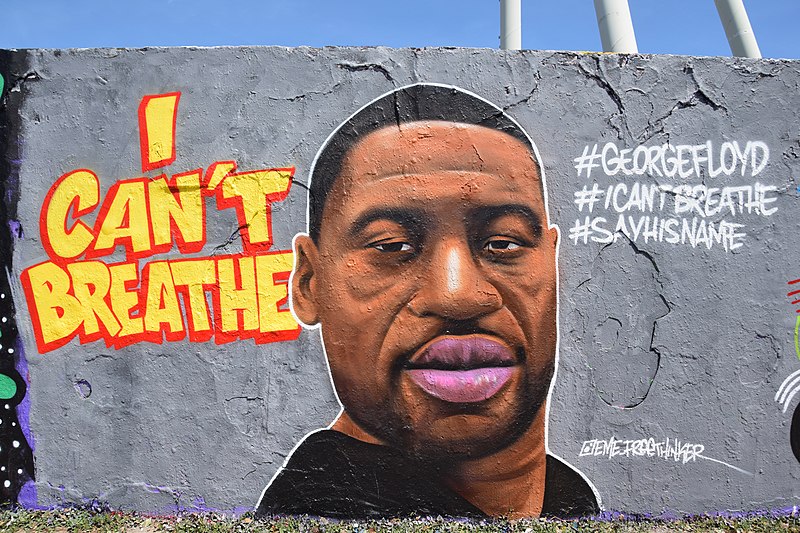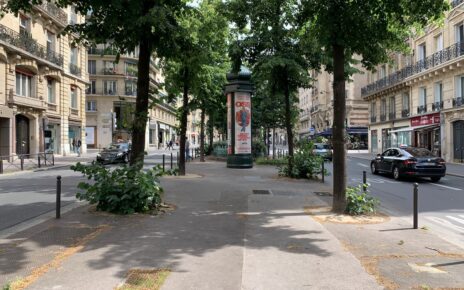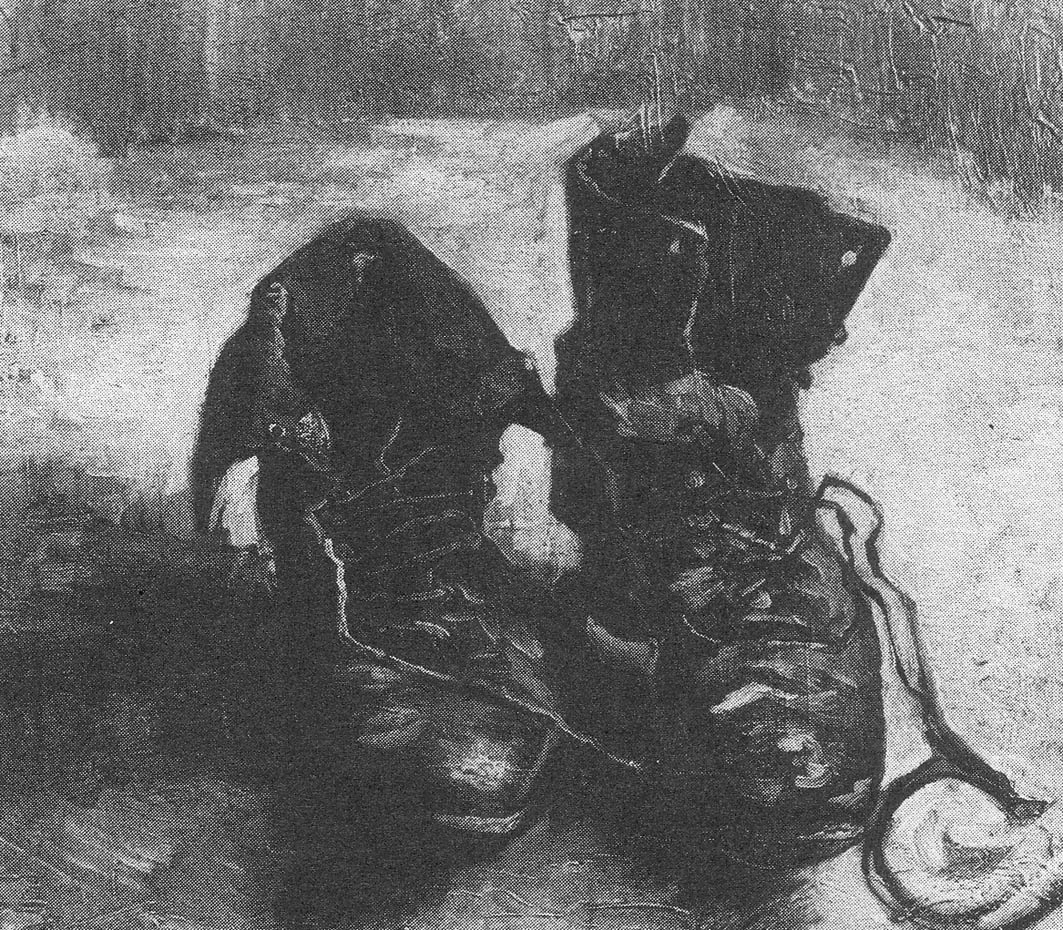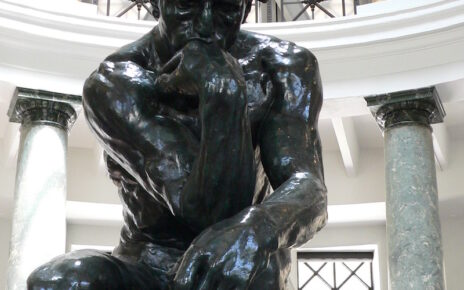The following is the first of a two-part series.
In her 1992 masterpiece, The Broken Middle, the philosopher Gillian Rose explored what she saw as a baleful crisis of ethics in modern political discourse playing itself out in the malaise and violence of contemporary urban life. Rose believed the root of this crisis was a ‘diremption’ between ethics and metaphysics; a misrecognition in which both became blind to the mutual implication of each other in political life and theory. This split was instantiated by a fracture in the language of philosophy and theology, and in the broad institutional failures – indeed, the inherent violence – of contemporary political regimes.
Her ire focused primarily on western liberal democracy; a political form she thought foreclosed the complications of a middle space of encounter between the legal state and the real polis, where people navigate the sheer givenness of the mundane, everyday experience of working out their fragile ethical commitments, in favor of a totalitarian administration of an absolute, autonomous law over and against any claim of subjective particularity or peculiarity.[1]
Surely no glance at the last thirty years of western politics would lead anyone to challenge her observation of a looming – now prevailing – crisis in political thought and life. In the face of this, the question Rose asks us to contemplate is not how to mend the brokenness of the middle space, for attempts to, “…provide a solution that sutures the diremptions of modern life, such as morality and legality, religion and the state, because those fields… already arise out of the process of diremptions.”[2]
Rather, what Rose wants is for us to recognize how attempts by either modern neoliberalism and post-modern thought to close the broken middle space of encounter “…between the potentiality and actuality of the world, between universal and particular, between freedom and un- freedom, between legality and morality”[3] result in a premature closure of the real lived spaces of co-belonging and co-becoming of different truth claims and ways of being.[4]
The point of Rose’s critique is to support the proposition that it is precisely in this important middle space of brokenness and possibility that we find the wisdom of a narrow way where neither the easy ‘euphoria’ of absolute truth or absolute contingency rule the day, but rather through an acknowledgement of the fundamental brokenness of our shared ‘middle’ spaces the real work and struggle of political life – life together – can begin. Rose’s middle is not a fantasy of stateless individuals in totally free, unbounded association.
Rather, her middle is a space in which a person’s particular activities and situation sit in direct relationship with the legal state apparatus as a whole and thereby become a ‘public affair’ in a way that both legitimizes the individual subject as one in relation with the public and legitimizes the legal society as a whole through its instantiation by the individual.[5] The middle is broken because it is imperfect; imperfect precisely because temporal law derived from the real, ever fluid ethics of subjective encounter is a requirement for preserving the status of the subject and the civility of the society.
In addition to tracing and reflecting on Rose’s observations of the rot at the root of life in neoliberal, capitalist modernity, I believe Rose’s recognition of this diremption and loss of the ‘broken’ middle lines provides a new entrance into the eschatology of the Apostle Paul; who’s importance for deeply philosophical political projects has only grown more pronounced in recent years.[6]
Where in The Broken Middle, Rose offers an incisive critique of the limits of the modern political-ethical imaginary, the eschatological vision Paul lays out in his letters offers a constructive grammar of resistance to the pernicious euphoria of totalitarianism or nihilistic utopianism through the suggestion of a new body politic in the broken body of Christ in precisely the middle space between heaven and earth Rose thought it should exist.
This may seem an odd paring at first glance owing to Rose’s own (I would argue, misguided) suspicion of Paul’s role in establishing what she called “a philosophical tradition of opposition between law and grace”.[7] But of course, Paul does not set these in opposition but shows how grace fulfills and perfects law. So in setting them as conversation partners we might open a path through which, as Ward Blanton describes it, we could return again to, “…rewired ancient spiritual exercises, little practices of remaining stuck, tarrying with the stuckness itself as the only site from which a properly philosophical logos of self-obstructing totality might be–must be–enunciated… that enterprise which neither overcomes nor compromises with paradox by obscuring it or making it profitability management.”[8]
Around 8:00 pm on May 25, 2020, a man named George Floyd was killed by another man, Derek Chauvin, in Minneapolis, Minnesota. What transpired between the two men may have passed unnoticed like countless other homicides were it not for the stark way their respective roles in the community laid bare the limited political possibilities of our society’s ethical imaginary. Derek Chauvin was a white police officer, an enforcer of the law, a reification of the absolute punitive power of the modern neo-liberal state.
George Floyd was an African American man, the quintessential scapegoat of present-day American society on which all the sins of racist, juridical violence and class struggle — what Gillian Rose saw as the cornerstones of modernity — are imparted.[9] As George Floyd breathed his last on the potted asphalt of Minneapolis’ East 38th Street, a real son from a real community, one set on the margins of society’s abstract power structures, was killed by the law’s real, embodied police power.
What happened next exemplifies precisely what Rose saw as the result of a centuries long malaise wrought by the loss of any politics of the broken middle by a retreat into abstract technocratic liberal cosmopolitanism. Her story in The Broken Middle is that with the fall of the old feudal bonds of corporations and guilds which exemplified ancient ‘civil society’, modern city dwellers have no option besides state-socialism or liberal individualism; totalitarianism or radical, bondless pluralism.[10]
The modern city, in her words, “…intensifies these perennial diremptions in its inner oppositions between morality and legality, society and state, and the outer opposition, so often now inner, between sovereignty and what Rousseau called ‘power’, and which we call ‘nations and nationalism’”.[11] Without these mediating institutions there is no middle space for mutual, collective recognition of a foundational subjectivity and personhood undergirded by the legal formation of society.[12] Instead, we are left with only ‘sanctified’ original individuals or a totalizing whole in which the subject is disintegrated in favor of an absolute utopia.
The discourse around George Floyd’s death franticly swung, and still does, between proclamations of murder or just violence by the law, a kind of sacrifice to the law. In this quarrel, law and personhood never touch; instigating a crisis in which naked power and violence are given a claptrap ethical veneer before collapsing into either nihilism or totalitarianism. Floyd is not allowed to be simply murdered. He must be sacrificed. While these positions appear to be two sides in opposition in their understanding, the attempt to transfigure Floyd into a scapegoat sacrifice reveals itself to be the janus face of neo-liberal totalitarianism playing itself out at both the level of thought and of lived experience in way that perpetuates the ‘disasters of modernity’.[13]
The collective righteous indignation of secular liberalism at his murder reinstates the premise of nothing beyond the absolute law by attempting to raise Floyd up as a scapegoat sacrifice who can ‘justify’ the violence of the law through blood sacrifice and heal the trauma. According to Rose, this attempt to make meaning out of something meaningless, to prematurely close the brokenness of the encounter in the middle space between law and subject, is a refusal of the “…universal or social law which would classify [the] sacrifice as “murder”[14], instead attempting by “just violence” the transfiguration of the specific victim, George Floyd, into the, “…unanimous sacrificial solution to social crisis.”[15] The sacrifice is not beyond the law, it is the foundation of the law.
During the protests in Minneapolis, and indeed around the United States, Floyd’s murder did not merely represent but virtually became the sum of all police injustice, all racial and class inequality and struggle. Yet despite this attempt at a transubstantiating ritual, Floyd’s death remained a murder. The agony could not be overcome because ritual violence is inherent in the totalitarian system of relations.
The public discourse attempts to “pit the sacrifice against law”[16] by claiming a double movement in which, “…the ethical expression for what [was done] was… murder… the religious expression was… sacrifice.”[17] But this ritual, “…disavowal of… violence” through the scapegoat sacrifice would also requires the disavowal of the very law it is attempting to satiate.[18] If there is no law, then Floyd’s death at the hands of Chauvin cannot be called a murder. If his death is sacrifice, then his murder is just under the law.
Here Rose helps us draw out the conclusion of the contradiction: if Floyd’s death is a sacrificial, Derek Chauvin is not guilty of murder, as the sacrifice is a ritual beyond the law. But then if there is no murder, the sacrifice is not necessary to take away with it all the sins and impurities of the community. If the sacrifice is unnecessary then Floyd cannot truly be a scapegoat and the sacrifice is nothing more than murder. But if murder, then the ritual sacrifice must be made.
Floyd’s death cannot serve a double function. Violence under the punitive regime of the totalitarian neo-liberal state begs for justice for individual under the law to preserve order; to legitimize the individual’s status as a subject through the law. Yet also yearns to set the sacrifice beyond the law, beyond subjectivity and outside the community in the act of making them a nameless sacrifice thereby collapsing the whole system of relations into abstraction and meaninglessness or mimetic repetition.
Rose, riffing on Kierkegaard’s Fear and Trembling, suggests the scapegoat ritual is an endeavor via sacrifice to classify all human relations as derivative of an absolute, primordial law. But as Kierkegaard notes, an absolute law also calls for full disclosure, for the externalization of any particularity; there can be no secrets before the universal absolute, no ‘just between you and me’.[19] For the sacrifice to stand for all, “…the whole of human existence [must be] entirely self-enclosed, as a sphere” in which “the ethical is at once the limit and completion.”[20] In the scapegoat ritual no relation can be particular.
All relations are held at the abstract level of the faceless ‘other’ of the absolute. There is no me before you, only each of us alone before the law. The most tragic violence of the scapegoat sacrifice then is not in the physical death of the victim, but the annihilation of the victim’s subjectivity when they become the scapegoat in order to become the faceless ‘other’ underpinning the totalitarian system of relations.
It follows then that in right wing descriptions of the Floyd’s murder the law must prevail. There is no outside the law, no holy altar on Mt Moriah where murder can be called sacrifice, and there is therefore no sense in offering a sacrifice to try and overcome the law. The law is all there is. As Fergus Kerr notes in his reading of The Broken Middle, “…when feudalism was overthrown, civil society (corporations and guilds and so forth) disappeared, leaving individuals face to face with nothing but the state.”[21]
Rose knows the aphasia of this constant competition and collision, “… the more the middle is eroded, the more its illusion proliferates… With no ‘reality, we have as ‘individuals’ only a perpetually embattled and changing actuality.”[22] And she continues, “Having lost all sureness of political discrimination, we no longer know where power resides – in all institutions, in the theoretical comprehension and critique of them, in ourselves, ontically or reflexively; even less, when it is legitimate, when illegitimate, when non-legitimate; least of all, how it is articulated and reconfigured.”[23]
The more subtle effect of the loss of the broken middle is on forms of resistance to this totalitarianism in what Rose saw as postmodern ideologies of pure individualism and unbounded pluralism. What she read in the literature of postmodernity is a desire to overcome the distinction between law and ethics, power and community, that – just as the scapegoat ritual – serves only perpetuates the same categories of either law or individual, institution or “holy community”.[24]
For Rose this reveals an antinomianism present in postmodern thought that is, just as any political community founded on the alternative hegemony of the state, unable to seed any mediatory spaces between individuals and institutions by setting all relations beyond the law in some originary space of pure being.
Derrida’s reading of the Moriah incident is illustrative of Rose’s critique of what can be called postmodern responses to the broken middle. In his essay “Above All, No Journalists”, Derrida highlights the despair of the unmediated divine voice, the abnegation of any sort of ethical possibilities:
“What must God of said to Abraham? What did he tell him, necessarily, at the moment when he gave him the order to climb Mount Moriah… what happens here, my summons and your response, your responsibility (“Here I am!”)–all of this must remain absolutely secret: just between us. It must remain unconditionally private, our internal affair and inaccessible…”[25]
It is not merely that Abraham must now obey this law of silence, it is that he has no other recourse. Despite his presence with God on Mt Moriah, Abraham does not become the mediating authority; even he is rendered mute. Speech for him is silence now, the incomprehensibility and therefore the silence of the voice of God creating a crisis of the subject as the “I-Thou” relation fades into interiority of “I”, rendering the subject mute as well.[26]
For Derrida, attempts at shared meaning making by any sort of exegesis of the event, even in ritual sacrifice, is a futile attempt to find a presence that was always an absence at the heart of the event. The problem of non-presence here is felt not only in the absence of the divine voice, but in the absence of the voice of Abraham after his encounter with the divine. His encounter does not affirm his singular status. It obliterates his subjectivity by rendering him dumb. Every encounter in this holy space becomes a trek up Mt Moriah in search of some divine voice that might validate the other in the relation.
But each person, upon reaching the summit, find it is always their own personal Mt Moriah they have climbed, and from it they can bring nothing back. They stand alone at the summit in relation only with themselves. In the absence of any mediatory institutions that might guarantee authentic ‘i-thou’ subjectivity the only conclusion is a nihilistic individualism.
It is telling that many details of the incident in Minneapolis remain concealed, and no narrative has yet emerged which might finalize the matter. Indeed, to the present moment new details, videos, and witnesses are continuing to come forward that attempt to steer the discourse one way or another, to ‘uncover’ the truth. Rose sees this silence, the Deus absconditus, devolve either into a Derridean nihilism because of the untranslatability of a message with no author – “I want to see if, even in the most extreme ordeal, the possible (demanded) death of your favorite son, you will be able to keep secret the absolutely invisible, singular, unique relation that you are to have with me” [27], or totalitarianism because of the necessary institution of panoptical law to discipline the recipients of the into this silence to protect the secret of the absence, “…the Law has become our paidagōgos.”[28]
Rose asserts, “…this is the… ethical task for the age” the “beginning of anxiety” and the “anxiety of beginning”[29] in the disjunction between the “deepest misery of the individual and the ethical universal demand.”[30] One cannot lose oneself to gain the world, nor can one lose the world and gain the self. The loss of either is the loss of both. Justice and innocence cannot both be had.[31] Here on the mountain, a wide street in an insignificant American suburb, atop the Moriah looming above us all the “arbitrary, binary myths” of an agon of nature and freedom, law and grace demand the invention of a “…passage from violence to the holy”[32], a “…passage from the non-ethical to the ethical.”[33]
Michael C. Raubach is a PhD candidate in theology at Aarhus University (Denmark). His research is funded by a fellowship from the ITN “History of Human Freedom and Human Dignity in Western Civilization Project”. He also holds masters degree from the University of Durham and the University of Glasgow.
______________________________________________________________________________
[1] Anthony Gorman, “Gillian Rose’s Critique of Violence.” Radical Philosophy 197 (June 2016), 25.
[2] Marcus Pound, “Rose Contra Girard: Kenotic Comedy and Social Theory (or, Zizek as a Reader of Rose),” in Gillian Rose and the Task of Political Theology (Eugene, OR: Cascade Books, 2018), 80.
[3] Kate Schick, Gillian Rose: A Good Enough Justice (Edinburgh: Edinburgh University Press, 2012), 44.
[4] Gillian Rose, The Broken Middle: Out of Our Ancient Society (Oxford: Blackwell, 1992), xv.
[5] Ibid., 303.
[6] See: Ward Blanton and Hent de Vries, eds. Paul and the Philosophers (New York City: Fordham University Press, 2013)
[7] Rose, The Broken Middle, 307
[8] Ward Blanton, A Materialism for the Masses: Saint Paul and the Philosophy of Undying Life (New York: Columbia University Press, 2014), 98.
[9] Rose, The Broken Middle, 182
[10] Fergus Kerr, “Review of The Broken Middle: Out of our Ancient Society, by Gillian Rose.” Sociology 27, no. 2 (1993), 366.
[11] Rose, The Broken Middle, 286.
[12] Nigel Tubbs, “Mind the Gap: The Philosophy of Gillian Rose.” Thesis Eleven 60, no. 1 (February 2000), 53.
[13] Schick, Gillian Rose: A Good Enough Justice, 57
[14] Rose, The Broken Middle, 149.
[15] Ibid., 136.
[16] Ibid., 100.
[17] Søren Kierkegaard, Fear and Trembling. (New York, N.Y: Penguin Books, 1985), 60.
[18] Rose, The Broken Middle, 137.
[19] Kierkegaard, Fear and Trembling, 97.
[20] Ibid., 96.
[21] Kerr, “Review of The Broken Middle: Out of our Ancient Society, by Gillian Rose”, 366.
[22] Rose, The Broken Middle, 297
[23] Ibid., 297
[24] Rose, The Broken Middle, 297
[25] Jacques Derrida, “Above All, No Journalists.” in Religion and Media (Stanford, CA: Stanford University Press, 2001), 56.
[26] Vítor Westhelle. Eschatology and Space: The Lost Dimension in Theology Past and Present (New York: Palgrave Macmillan, 2012), 6.
[27] Derrida, “Above All, No Journalists”, 57
[28] Galatians 3:24
[29] Rose, The Broken Middle, 105.
[30] Ibid., 112.
[31] Andrew Shanks, Against Innocence: Gillian Rose’s Reception and Gift of Faith (London: Scm-Canterbury Press, 2008), 30.
[32] Rose, The Broken Middle, 249.
[33] Ibid., 264.




